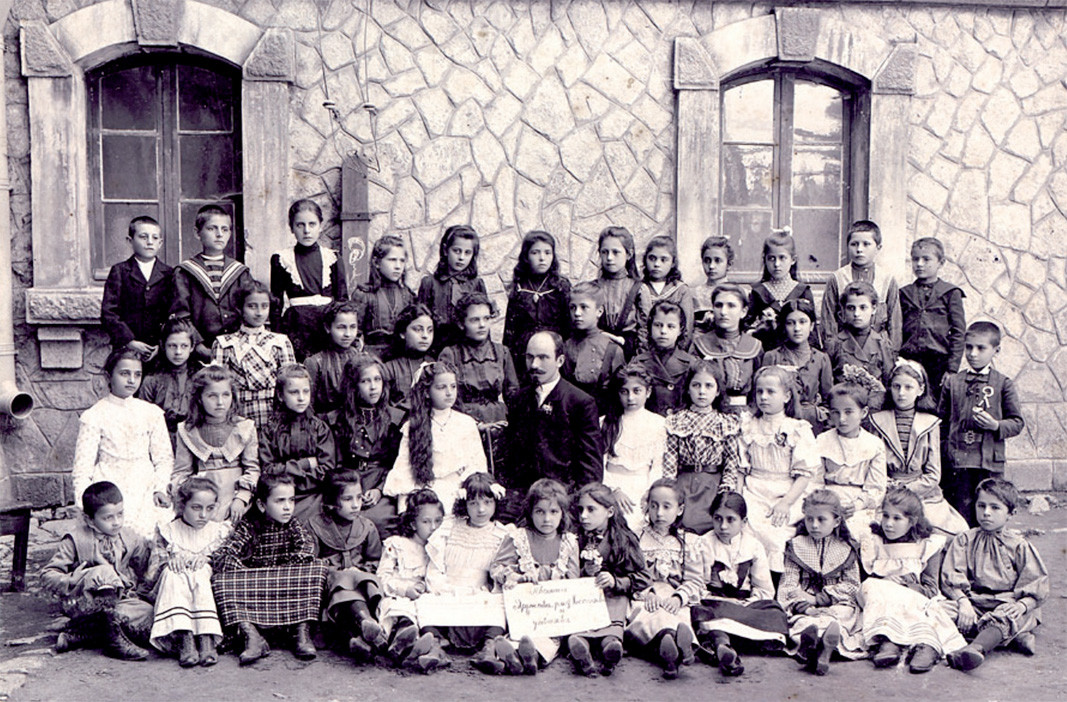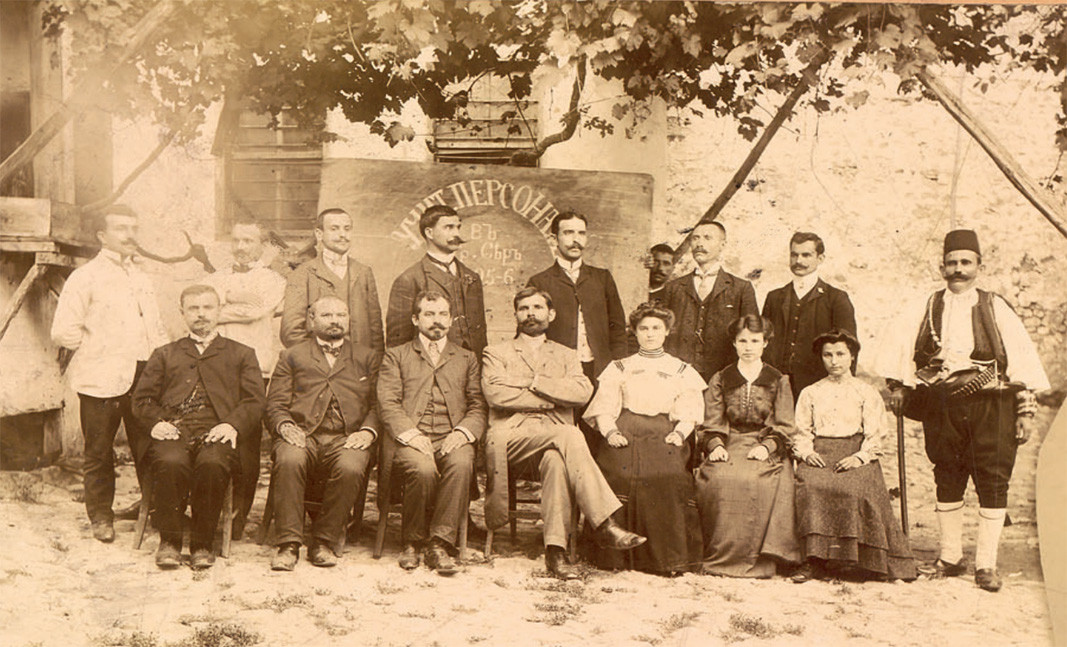In our time, the study of music in secondary schools is far from being the most important subject. Therefore, it is difficult to imagine the huge role of "school singing lessons" for the development of adolescents in the first years of the life of the newly liberated Bulgarian state following the 5 centuries of Ottoman domination called the Principality of Bulgaria (1879-1908). The book "Music in Bulgarian schools in late 19th and early 20th century", published by the Bulgarian Academy of Sciences, is dedicated to this interesting topic. The author is Assoc. Prof. Dr. Rositsa Draganova, who, in addition to being a researcher with significant achievements at the Institute for the Study of the Arts, is also a music teacher at a French lyceum in Sofia and co-author of textbooks for secondary schools.
"The organization of the Bulgarian school system, including the teaching of music in it, began immediately after Bulgaria’s Liberation in 1878”, explains Assoc. Prof. Draganova.

“An Interim Statute for Education was issued, and among the subjects listed in this document was "church singing". The name of the subject reveals a connection with the processes in the Bulgarian school, which started during the National Revival period, when the teachers prepared certain chants with their students and later performed them in the church. It is clear from the curricula that the main goal was to acquaint children with a repertoire different from the one they "consumed" in everyday life and the family environment. The concept of "school songs" was introduced, which meant songs accessible and understandable for children, suitable for their upbringing and education. This intensified the processes in the field of children's music creativity”, Assoc. Prof. Draganova says.
There are many examples of songs created in this period which have remained in use for a long time, the professor adds.
“One such song is "Beautiful Child" (Detenze hubavo), also known today, which was written by Stoyan Beshkov. He also created one of the first collections of school songs. For a certain period Beshkov taught at the Pedagogical School in Kazanlak, where his songs were studied by future teachers and thus were spread all over the country. Teachers at the same school were also Georgi Baidanov and perhaps the most talented composer of that time, Emanuil Manolov, who created many songs, a significant part of which has been lost. Almost every Bulgarian child today knows the song “Hubava si, tatkovino” (How beautiful you are, my fatherland).
There were also a lot of patriotic songs at that time. It is interesting that even then the cradle songs (lullabies) entered the Bulgarian music education steadily. Apparently this type of melody turned out to be suitable to bring the children closer to Western European music. In one of the first collections entitled “Na teb, mila mamo” (To you, dear mother), along with many similar songs by Bulgarian authors, famous lullabies by Schubert, Brahms and other European composers were featured”.
The prominent personalities
"The first figures in music education in Bulgaria were really interesting and strong people. In addition to Bulgarians, among them were also Russian teachers invited by the government to teach in Bulgaria, as well as a group of Czech musicians who settled here”, Assoc. Prof. Rositsa Draganova explains. “A very prominent name is that of Karel Machan, who was among the first theorists of Bulgarian folk music and choreography, with publications in foreign editions. Other notable figures were Karl Yermarsh - a military musician, who taught violin at the Pedagogical School in Kazanlak and Alois Matsak, who first taught in Pleven”.
From the very beginning, music education in Bulgaria was at a very high level. One of the first textbooks, which was the most widespread at the time, was written by Georgi Baidanov. He borrowed the best from a number of textbooks then used in Europe, especially from Marmontel's textbook, which remained in practice until the early 20th century.
“If we compare the two textbooks, we can see that they are built on the same principles and have the same concept. Baidanov's textbook is entirely at the level of textbooks in Europe, where music entered the mainstream school curriculum at the same time - the 80-90s of the 19th century”, Assoc. Prof. Dragneva says.

The attitude of the state to music education
"At the beginning of the 20th century, those who received a real musical education abroad began to return to Bulgaria. It turned out that the Principality of Bulgaria was purposefully sending students on scholarship to acquire qualifications in Europe. Angel Bukoreshtliev, one of the important figures in the construction of all cultural institutions in the early 20th century in Plovdiv, was sent as a scholarship holder to Prague, where he studied from 1888 to 1890. At the same time the singers Ivan Slavkov and Dragomir Kazakov also studied there. After returning to Sofia, the three performed one of the first concerts in Bulgaria on the stage of Sofia’s Military Club. All of them later connected their destiny with the Bulgarian school for a certain period.

“I was especially impressed by the high level of consciousness of these people and their high self-confidence”, Assoc. Prof. Draganova continues her account. “It is interesting that they did not call themselves teachers but pedagogical musicians. In this way, they emphasize that they are also active musicians, they emphasize the musical practice itself - making music in class, and in the student choirs and orchestras they create. For them, music is not just a subject, but a vocation and a mission. Through music they civilize their students, give them the opportunity to move to another type of existence, which leads to another stage in the development of the state and of Bulgarian culture”.
English version Rositsa Petkova
Photos: Digital fund of National Library "ST.ST. Cyril and Methodius"On the second day after Easter begins Bright Week. It is so called because of the light that Christ's Resurrection brings to the world. According to Orthodox tradition, it is a time when the Holy Apostles and the Virgin Mary are glorified. Bright Week..
Patriarch Daniil celebrated a divine service for the so-called Second Resurrection of Christ in the Sofia-based church of Saint Nedelya. Patriarch Daniil greets Bulgarians with “Christ is Risen” At the festive liturgy, texts from the Gospel..
Patriarch Danil of Bulgaria, Metropolitan of Sofia, greeted the faithful with the joyful words "Christ is risen!" In his Easter message, he called on Orthodox Christians to share the extraordinary joy of heaven with the world through a life of light and..

+359 2 9336 661
